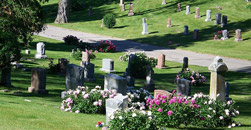The Last Week of the Great War
Nov 21, 2018On the homefront, civilians confront not only the seemingly unending tallies of war dead and wounded carried by the morning papers but also the massive death toll from a worldwide influenza outbreak — often printed alongside the day’s syndicated comic strips. Efforts against spreading the illness close schools, theaters and churches. Joining these grim headlines are stories about a pivotal congressional election, women struggling to get the vote and African-American opposition to the Jim Crow laws that are fueling the Great Migration out of the South. Here, through personal letters, regimental records and newspaper archives, we reconstruct the week of Nov. 4, 1918, and find how eerily similar it was to today. Monday, Nov. 4 ‘I AM HEREWITH OFFERING MY SERVICE’ The two older sons of the Rev. Richard J. Bass, Urbane and Benjamin, are on the front line in France. His two youngest — Joseph, who works for the Pennsylvania Railroad in New Jersey, and Cardwell, still living at home in Jackson Ward — have registered for the draft. A pastor with Mt. Tabor Baptist Church and an insurance salesman in the Ward, Richard lost his wife, Rosa, the mother of his six children — they also had two daughters — four years earlier. Son Urbane attended Virginia Union University, and on Aug. 8, 1901, he was among 22 young men who formed the Astoria Beneficial Club to promote racial equality and education. After his 1902 VUU graduation, Urbane trained at Leonard Medical School in Raleigh, N.C., and soon wed Maude Vass, the sister of a classmate. They returned to Richmond in 1906 but later moved to Fredericksburg, where Bass is the first black physician since Reconstruction. He makes house calls, and when surgery is necessary — because of the restrictions against black admission at white hospitals — he uses the kitchen tables of patients. His payment from clientele often includes food and services. When the U.S. enters the war in 1917, Bass — age 38 — exceeds the customary military age. H...



